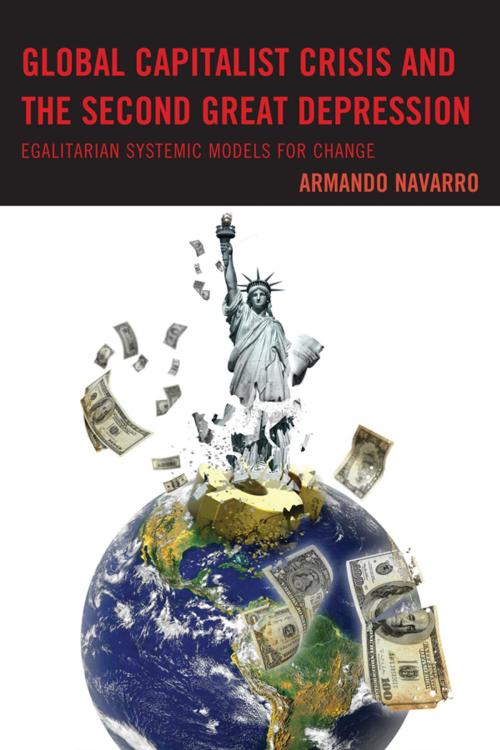Global Capitalist Crisis and the Second Great Depression
Egalitarian Systemic Models for Change
Nonfiction, Social & Cultural Studies, Political Science, Politics, Economic Conditions, Economic Policy| Author: | Armando Navarro | ISBN: | 9780739170175 |
| Publisher: | Lexington Books | Publication: | January 1, 2012 |
| Imprint: | Lexington Books | Language: | English |
| Author: | Armando Navarro |
| ISBN: | 9780739170175 |
| Publisher: | Lexington Books |
| Publication: | January 1, 2012 |
| Imprint: | Lexington Books |
| Language: | English |
In this comprehensive work, Armando Navarro delivers a timely analysis of the global capitalist crisis that has arisen in the United States. Navarro offers a wide-ranging political historical analysis of events the led up to the present co-called “Second Great Depression.” Starting with the end of World War II, he tracks the various political and economic decisions that have led to the emergence of the global economic crisis that began in 2006. He provides context for the current economic situation by discussing the major economic and political events, including the Great Depression, the New Deal, the rise of neo-liberal capitalism, and the collapse of the subprime mortgage industry.
Navarro incisively reviews and critiques the Obama administration and Democrats’ quasi-welfare capitalist legislation. Driven by social democratic models, he constructs a transformative social movement paradigm that calls for the rise of reform and proposes dramatic systemic change. Navarro concludes by looking at the U.S. political culture—what he contends is the major obstacle to the rise of “socialism” in the United States—and speculates about the potentially bleak economic future to come
In this comprehensive work, Armando Navarro delivers a timely analysis of the global capitalist crisis that has arisen in the United States. Navarro offers a wide-ranging political historical analysis of events the led up to the present co-called “Second Great Depression.” Starting with the end of World War II, he tracks the various political and economic decisions that have led to the emergence of the global economic crisis that began in 2006. He provides context for the current economic situation by discussing the major economic and political events, including the Great Depression, the New Deal, the rise of neo-liberal capitalism, and the collapse of the subprime mortgage industry.
Navarro incisively reviews and critiques the Obama administration and Democrats’ quasi-welfare capitalist legislation. Driven by social democratic models, he constructs a transformative social movement paradigm that calls for the rise of reform and proposes dramatic systemic change. Navarro concludes by looking at the U.S. political culture—what he contends is the major obstacle to the rise of “socialism” in the United States—and speculates about the potentially bleak economic future to come















